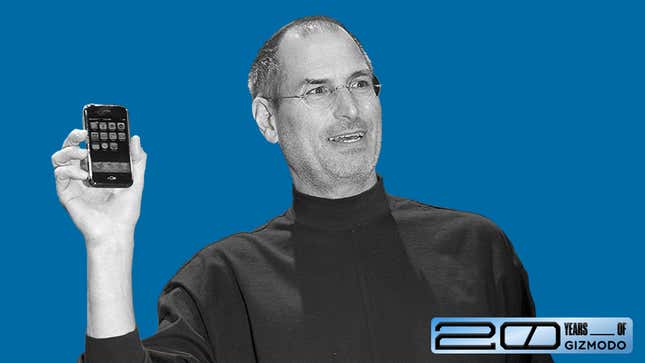
Gizmodo is 20 years old! To celebrate the anniversary, we’re looking back at some of the most significant ways our lives have been thrown for a loop by our digital tools.
Gizmodo had humble beginnings and some decidedly un-humble writers when it first launched in 2002. Our tagline at the top of the page read “The Gadgets Weblog” and we had nine whole categories of coverage which included “PDAs” and “Peripherals.”
Since then, we’ve grown up a little bit and expanded out to cover every inch of “geek culture.” The two decades of stories that have followed represent a living record of modern technology and how we communicate online. Our earliest posts were more along the lines of Digg recommendations, consisting of little more than a sentence and a link. Along the way we started mixing in scoops, context, humor, and analysis.
A lot of publications would celebrate an anniversary by highlighting their best work. Not Gizmodo, baby! Some of these posts are straight up trash. Sure, I could tell you that just last week we won an Edward R. Murrow award for our investigation with The Markup into predictive policing. I could highlight that time when we exposed Amazon’s “Last Mile” labor abuses, Ring’s cozy data-sharing relationship with law enforcement, or the impossibility of escaping the eye of big tech. But I’m not going to do that. I’m here to talk about news posts.
Specifically, we decided to comb through the Gizmodo archives to find the first time we ever mentioned some of the biggest tech news stories of the 21st century.
Were we late to a huge innovation? Did we have stupid opinions? Did we warn you? The answer to all of the above is: Yes.

2002
iPhone - August 12, 2002
Headline: An iPhone From Apple?
We were early! Our three sentence, typo-ridden, unbylined pointer to a New York Times piece dropped almost four years before Steve Jobs took the stage to show off the first iPhone. But in the ancient times of 2002 we were still calling it a “PDA phone.”
Closer to the actual launch, what would become known as “iPhoneyGate” kicked off when former Gizmodo editor Brian Lam teased the coming release of an iPhone in late December of 2006. That “iPhone” turned out to be a VOIP handset by Linksys rather than the highly anticipated product from Apple. People called for a boycott of Gizmodo and Lam proceeded to get more posts out of it.
Eventually, the real iPhone landed and we gave it a middling review due to its lack of features and exclusivity with AT&T. But Apple would later perfect the device with the iPhone 4, and this time, Gizmodo did scoop the planet by obtaining a unit before anyone else. Unfortunately, Apple wasn’t happy and sent the cops to editor Jason Chen’s house, where they seized four computers and two servers. Anyways it all worked out, Chen isn’t in jail, Lam founded Wirecutter, and eventually Apple talked to us again.
2003
4G - April 29, 2003
Headline: Samsung and Nokia: together 4ever?
Anyone who lived through the years of “5G is coming” and “5G is almost here” and “5G is here but it’s not very useful yet” will feel a bit of deja vu looking back at the initial coverage 4G in 2003. “Rumor over at MobileTracker that Samsung and Nokia plan to team up to build 3G and 4G phones,” we wrote. “4G cell phones are still a long, long way off, but supposedly will have top speeds of up to 100Mbps.”
4G would become a huge advance for mobile networking around 2009 and power the smartphone revolution. Today, we’re still going through the 5G rollout with some customers getting up to 10 Gbps and we haven’t really begun to see what changes it will bring.
2004
Gmail - May 6, 2004
Headline: AllofMP3.com Impressions: Serious Contender
Apparently the launch of the world’s biggest email provider didn’t warrant its own post. Instead, Gmail gets its first Gizmodo appearance in a review of a shady Russian MP3 sharing service. We liked it!
Firefox - November 23, 2004
Headline: Motorola A835 Review (with Bonus Javascript Minefield)
Our first mention of Mozilla’s Firefox browser was tucked away in a pointer to a GSMBox review of a forgotten Motorola “videophone.” The blog turned into a review of the review’s formatting: we “almost didn’t link to because of their awful decision to use a silly Javascript rollover that causes status boxes with an OK button to pop up every time you mouse over an underlined term. I appreciate their effort to provide definitions for sometimes confusing terminology, but for the five or six of us in the world using Firefox, it’s really annoying. So if you’re not using IE, be prepared to be penalized for your communist browser sympathizing.”
Today, Firefox has around 215 million users and is generally considered to be struggling. Internet Explorer is dead
iPad - August 13, 2004
Headline: Apple iPad?
For anyone who thinks the rumors of an Apple headset or car are getting long in the tooth, it’s worth remembering that we were speculating about the iPad six years before it was released. The rumors in 2004 related to a “Tablet PC-alike” “handheld computer” that “resembles a large iPod with an 8-inch diagonal screen ... and runs Mac OS X.” That last part turned out to be false, but one can dream.
2005
Google Maps - February 15, 2005
Headline: MDA IV Softcore
Technically, the first time the words “Google Maps” appeared on this website was in a recommendation link to our colleagues at Lifehacker. They knew it was a game-changer. We were too busy playing with the exciting new MDA IV Windows Mobile smartphone. Our plans for the device? “First, we’re going to go out to the park, and I’m going to check my mail—maybe do a little Excel. Then out on the town for dancing and Google maps via Wi-Fi. Then I’m going to invite it home, take off its carrying case, and ask it sweetly, ‘Authorize access for device 0x87A from ‘Office’?’”
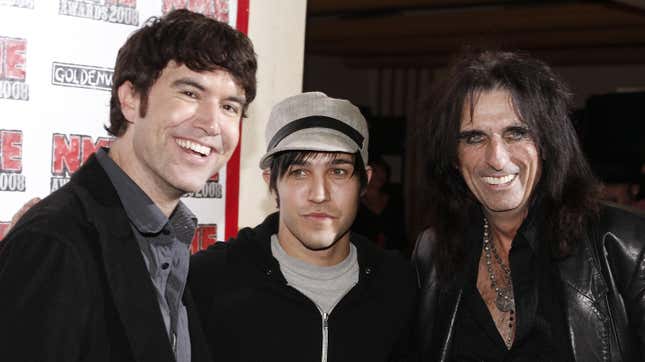
MySpace - October 14, 2005
Headline: Motorola Gets Heard
“Attention all crappy bands out there: log out of your myspace account and check this out,” we proclaimed as Motorola announced some shit called the Get Heard Network. It was never heard from again.
Facebook - November 28, 2005
Headline: The Truth Behind Girls Against Video Games
In a post about about a controversial “Girls against Gamers” user group, we explained that “Facebook is a website that allows college students to put up profiles and make friends, join groups, post on message boards, etc. It is similar to that of a MySpace but college students only.”
2006
YouTube - January 25, 2006
Headline: Video Review: Helicor StressEraser
In a video, we reviewed a quack gadget called the Helicor StressEraser and complained that “YouTube reduces the frame rate to 2 per second.”
Large Hadron Collider - February 10, 2006
Headline: World’s Fastest Digital Camera
Finally, an actually relevant post. Here’s what we had to say about the fastest digital camera in 2006: “A group of 20 scientists at the University of Wisconsin at Madison have spent the past five years developing this project. The 8-foot-tall camera can take images at less than two-billionths of a second. The project, called the Regional Calorimeter Trigger, is used to take pictures of colliding particles. This $6 million digicam will finally be put to the test later this year when it is shipped to the Large Hadron Collider in Geneva, Switzerland. Good luck, Swiss-Wisconsinites.”
Tesla - July 19, 2006
Headline: Tesla Roadster Electric: 0-60 in Four Seconds
Ah 2006, when Elon Musk wasn’t a total jackass and we could just sit back in awe of Tesla’s acceleration rates.
PS4 - August 3, 2006
Headline: PlayStation 4 To Be Neutered, Rendered Disc-Less
Even before the PlayStation 3's release, Sony execs were giving us a reason to believe that the PS4 wouldn’t have a disc drive. “So you mean in 5-10 years, our home’s series of tubes/big trucks/broadband connections will be fat enough to download a 50GB game in a decent amount of time?” we asked. Well, the PS4 and the PS5 ended up having disc drives but the dream of speedy game downloads did come true.
Kindle - September 11, 2006
Headline: Amazon Kindle E-Book Reader Packs EVDO
At the time of its release, we framed the launch of Amazon’s Kindle as a nascent war with Sony. It’s safe to say that Amazon was the victor. The news related to an FCC filing with a spec dump on the upcoming e-reader. We were most excited about the inclusion of EV-DO cellular data for downloading books.
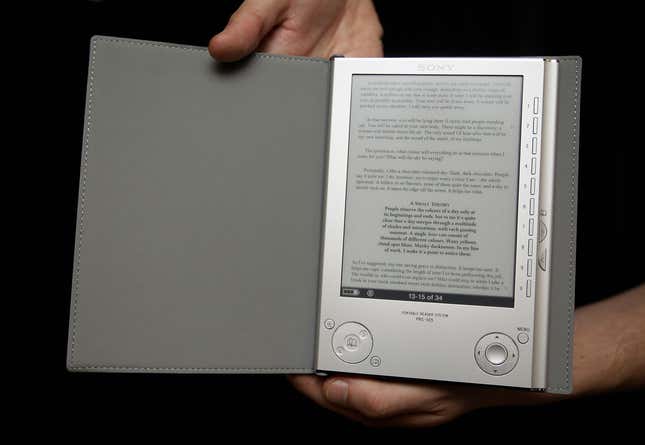
2007
Google Docs - March 20, 2007
Headline: Google Helps Themselves by Helping African Nations
That time that Google bizarrely promoted its productivity software with an agreement to provide Google Docs software to the Kenyan and Rwandan governments for free. We wrote:
“This all sounds well and good, and I’m all for supplying African nations with better technology, but aren’t all these apps free already? I mean, what exactly is Google doing here that’s so great?”
Netflix Streaming - March 1, 2007
Headline: Netflix Watch Now: Secret Technique for Cutting In Line, Get Streaming Now
Our first coverage of Netflix’s streaming feature was all about helping people get access to the service before its official release. Our initial impressions were not very positive:
“A couple of quick realizations: the service doesn’t work with Firefox, so you have to use Internet Exploder. After downloading Netflix’s proprietary playback software, we clicked on the movie Amadeus, and unfortunately it was in a 4x3 aspect ratio with mediocre video quality. So far, eh.”
Almost exactly two years later, we would report that Blockbuster had hired a firm to explore bankruptcy proceedings.
Microsoft Surface - June 21, 2007
Headline: Microsoft’s Multi-touch laptop, Based on the Surface Table
Microsoft’s foray into hardware kicked off in 2007 with a demonstration of the Surface laptop. Here’s what we said:
“Will multi-touch displays replace the boring old mouse in the future? I’m highly skeptical, but it looks like enough money is being pumped into the technology that it’ll have a shot at the mainstream soon enough.”
Android - November 3, 2007
Headline: gPhone OS Codenamed Android, Is Full OS With SDK?
I just love that there was a time when the placeholder name for Android was gPhone OS.
2008
App Store - March 6, 2008
Headline: Apple iPhone SDK Liveblog Archive
In a liveblog of Apple’s 2008 “iPhone roadmap event,” we got our first mention of the App Store and we were already talking about competition concerns.
“Is the App store a monopoly?
Steve: They won’t be able to do it without the store. Small and big devs won’t have the same reach so why would they want to go elsewhere?” (Paraphrased.)”
Instagram - March 18, 2008
Headline: How to Create Artificial Intelligence in Your Spare Time
All the way back in 2008 we were discussing the potential of Instagram to aid in the development of A.I. Here’s what we wrote:
“Tag everything you can on the Web. Many A.I. theorists believe that the first steps to creating a sentient computer involve teaching it to recognize information in the same way humans recognize it. So, for example, if you tag images on photo-sharing sites Flickr or Instagram, you are building up a database for a future A.I. who can look at a picture of a car and say to itself, ‘90 percent of people called this a car, so it’s most likely a car.’”
AWS - March 26, 2008
Headline: Dash Launches Express on Amazon, Drops Price to $400
It’s fitting that Amazon Web Services launched in 2002 and didn’t get a mention on Giz until 2008. Nobody thinks about AWS. It’s boring. It’s also insanely profitable and the biggest source of Amazon’s power. But, man, it’s really boring to talk about.
Chrome - September 1, 2008
Headline: Chrome: Google’s Open Source Browser
The headline pretty much says it all.
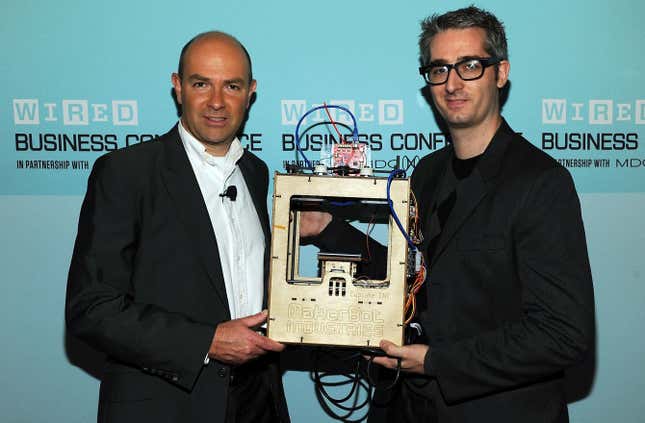
2009
HTML5 - February 19, 2009
Headline: Browser-Based Offline Gmail Demonstrated On iPhone, Android
We really have forgotten what the web was like before HTML5. Here we are marveling at offline Gmail:
“Google demonstrated a new Gmail mobile web app that leverages the HTML5 database and app cache features, which allow web apps to store certain types of data locally, much like Google Gears. The result is a super-slick app that retains a database of messages even when your cellphone lack any connectivity, and that’ll allow regulars tasks—message composition, deletion, and organization—to be queued up for synchronization when the phone next has service.”
Facebook Newsfeed - March 30, 2009
Headline: The Pirate Bay Lets You Share Torrents on Facebook
The newsfeed ruined Facebook (and maybe democracy?) so it feels appropriate that our first mention of it was to highlight its usefulness for illicit activity.
Watson - April 26, 2009
Headline: IBM Prepping ‘Watson’ Computer to Compete on Jeopardy!
Oh god, it’s been 13 years since Watson went on Jeopardy.
Spotify - May 30, 2009
Headline: The Month in Android Apps: Grey Cupcakes Have Delicious Spots
We were in love:
“Demoed at Google IO 2009, it actually isn’t available in America—legit use is limited to a handful of countries in Europe (we get Hulu, you guys get Spotify). It’s a scary good music streaming app. It caches songs so you can listen to them offline, and you can add music to your playlist from a computer—it’ll show up instantly on your phone. Oh yeah, did I mention Spotify gives you millions a tracks to create a totally customized library from? Pandora what? Pleasepleaseplease come to America.”
Makerbot - June 10, 2009
Headline: MakerBot Cupcake CNC Delivers DIY 3D Printing for Just $750
You guessed it, our first Makerbot post included a reference to Star Trek’s replicator:
“MakerBot founder Bre Pettis compared the CupCake to the mythical Altair 8800—but you know, for 3D printing. Next on their list is a 3D scanner that’ll copy the design of objects so you can skip creating the 3D schematic yourself—turning CupCake into a replicator. We talked a bit about the possibilities of DIY object replication—Cory Doctorow’s Printcrime story came up, but for now you’re limited to 3D printing objects the size of cupcakes, hence the name.”
Still waiting for the promise of that one to pay off.
Siri - September 1, 2009
Headline: Siri
That’s not a typo. That’s the whole headline. Just “Siri.” We’ve been underwhelmed ever since.
WhatsApp - November 13, 2009
Headline: This Week’s Best iPhone Apps
We said it was “like BlackBerry Messenger for the iPhone” and heartily recommended WhatsApp. Sadly, Zuckerberg had to go and ruin a good thing. Use Signal.
Curiosity Rover - December 30, 2009
Headline: 15 Reasons To Live For The Next 10 Years
Um, well, if you were thinking of ending things back in 2009, we had a bunch of things to change your mind. The Curiosity Rover was number 1 on the list. Here’s what we said:
“So why get so excited about another Martian rover? Because what Curiosity discovers will help bring us closer to establishing a Martian base which could one day become the foundation for a thriving Martian civilization. And that’s the kind of future that we live for.”
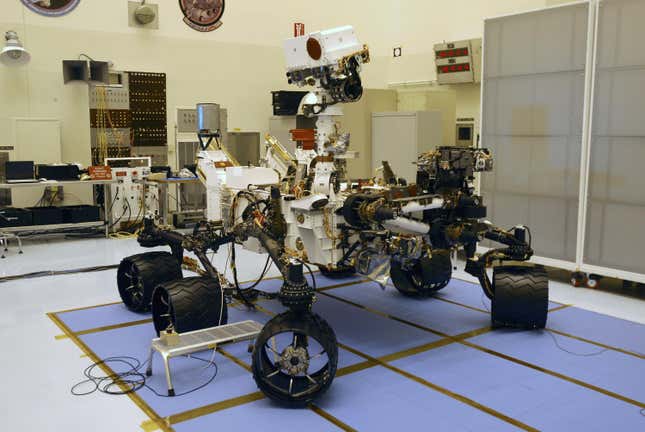
2010
Chromecast - June 21, 2010
Headline: Google Chromecast Review: A Little Dongle With Big Potential
We raved about this new affordable streaming option. It hasn’t changed all that much since then—still pretty cheap, still works.
2011
Bitcoin - May 11, 2011
Headline: What is Bitcoin?
Can you believe, it’s 2022 and people are still having to write bitcoin explainers?
Here’s what we said in 2011:
“In their YouTube manifesto, Bitcoin’s creators say they’re going to revolutionize global finance the way the web changed publishing. So! Kind of a lofty goal, aiming to be a global currency up there with (or replacing) the dollar. Right now, that’s still the pipiest of pipe dreams.”
Everything we wrote back then is still true today. You might even call this blog “immutable.”
House of Cards - March 15, 2011
Headline: Netflix Will Produce Network-Quality Shows of Its Own
There was apparently a real feeling of Netflix being an underdog taking on the man with its move to be the first streamer producing original content. “Networks and cable operators: suck it,” we said when news of the House of Cards deal dropped.
Today, Netflix produces approximately 15,000 shows a year, they all have the same weird look, and most don’t make much of an impression.
Chromebooks - April 29, 2011
Headline: Chromium Nerds Leak New Samsung Chrome OS Laptop
Leaked specs just hit different when they’re over a decade old.
iMessage - June 6, 2011
Headline: The Best of the 200 Unsung Features in iOS 5
This was a round-up of more obscure features in iOS so there’s not really much discussion of iMessage beyond “iMessage will be awesome.” It appears that Lifehacker handled the post about the most important updates to the OS. Here’s what they had to say at the time:
“Another new useful feature, which will hurt Blackberry and the telecommunications companies wanting to sell you stupid SMS and MMS contracts: Apple has implemented a new messaging system called iMessage.
It works between all iOS 5 devices, allowing you to leave conversations on your iPhone and continue them in your iPad. It comes with delivery notification as well. However, unlike WhatsApp, it doesn’t work with other non-iOS devices. Maybe Apple thinks your Android and Blackberry friends are not worth talking to for free.”
Uber - July 1, 2011
Headline: Gizmodo Thinks You Deserve a Private Driver
“Cabs come quick, but who wants a grimy backseat? Car services are a great ride, but they take forever. How about the best of both worlds? Uber offers convenient on-demand rides, at your fingertips, using a mobile device.”
Fucking embarrassing.
Raspberry Pi - May 6, 2011
Headline: Want a $25 Computer?
“This skeletal computer absolutely WILL NOT run Crysis,” we proclaimed. From there, a million hobby projects were launched.
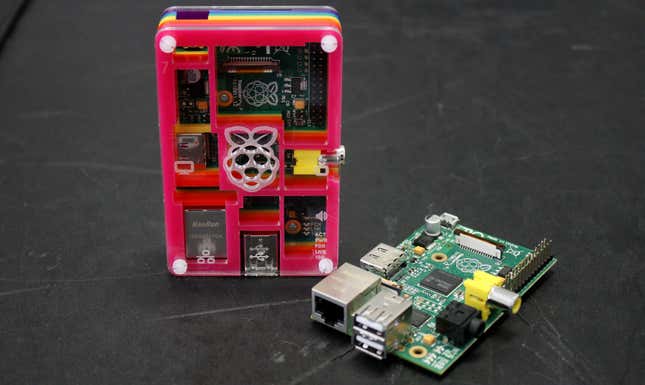
2012
Y Combinator - February 6, 2012
Headline: How To Electrify Your Brain To Be Smarter With a 9-Volt Battery
Apparently “transcranial direct current stimulation” can make you smarter. Our first mention of the highly influential tech incubator came in the form of a request that one of those “Y Combinator kids” make an app that zaps our brains into overdrive. I’m gonna say it’s probably a good thing that didn’t happen.
Snapchat - May 5, 2012
Headline: Snapchat Automatically Sets Your Sexts to Self-Destruct in 10 Seconds or Less
Never forget that Snapchat started as a dick pic app.
Oculus - December 14, 2012
Headline: Oculus Rift VR headset to be used in Sinful Robots ‘erotic encounters’ video game
It’s a time-worn belief that porn drives adoption of new technology, so it’s easy to understand how the addition of “erotic encounters” content could be the silver bullet that Oculus needed to launch a VR revolution. That hasn’t panned out just yet but there’s plenty of VR porn out there, if you want it.
Google Assistant - June 27, 2012
Headline: What’s Google Announcing at I/O Today?
It was a day of big reveals at Google and they had a voice assistant that was poised to take over the smart home. Here’s what we had to say:
“This means Google may well have a Siri competitor in the hopper. Possibly called Google Assistant, the voice control system would, of course, work on Android devices. Google’s voice recognition technology is no joke, and Siri’s spotty performance makes it low-hanging fruit.”
That summation proved to be true and Siri’s been trying to catch up ever since.
mRNA Vaccines - November 25, 2012
Headline: RNA-based Vaccine Could Wipe Out the Flu Forever
It was a more innocent time. A time in which we imagined mRNA vaccines could put an end to the flu rather than being our only hope of digging our way out of a global pandemic that set off two years of disruptive lockdowns and agonizing political fights.
I’m going to shoutout a commenter on this one. A Kinja user named Burke wrote that these vaccines could help wipeout the flu “... until the virus mutates. Sorry, not trying to be a downer, but nature has a nasty way of getting around vaccines eventually. Still, this has potential to at least minimize the flu bug, though I doubt we’ll ever wipe the sucker out.”
Covid-19 showed us that mRNA vaccines are incredibly effective at protection and can be developed fast, but adjustments have been needed as the virus mutates.
2013
Slack - August 14, 2013
Headline: Slack for iOS and Android: A Better Way to Collaborate With Coworkers
It’s been about a decade since Slack entered our work lives and it’s hard to recall a time without it (or one of its competitors, at least). Work email has only gotten worse since 2013, imagine what it would be like if we never moved on to this type of workplace software.
We were excited about Slack and, personally, I’m still a fan. But there’s no denying that it helped usher in an era of sweeping workplace surveillance. You take the good with the bad.
CRISPR - February 28, 2013
Headline: Human Genome Tinkering Could Be Our Best Bet to Beat HIV
The power of the CRISPR genome-editing technique is only beginning to be understood. For the most part, the scientific community has been cautious about using in its most controversial applications—that one scientist who engineered the world’s first “CRISPR babies” aside.
Unfortunately, CRISPR has not produced a cure for HIV but it every year researchers show how it’s increased our understanding of the virus and tons of progress is being made.
Xbox One - May 21, 2013
Headline: Xbox One: Everything You Need to Know About Microsoft’s New Console
We knew the name of the PS4 way back in 2006 (okay, lucky guess) but it wasn’t until the official reveal that we got the name of the Xbox One (underwhelming, confusing). We did, however, get the spec dump mostly right before Microsoft’s presentation.
While the latest generation of consoles have been hobbled by supply chain issues and a lack of blockbuster titles, the Xbox One and PS4 indoctrinated millions of new gamers and in recent years, the video game industry has surpassed the annual revenue of the film and music biz.

2014
DeepMind - January 27, 2014
Headline: Google Found an Artificial Brain to Power Its Robot Army
For many people, DeepMind was the first introduction to neural networks and deep learning. It first landed on our radar after Google $500 million for the startup that already learned how to beat humans in simple video games like Pong and Space Invaders.
A year later, Google’s Deep Dream neural network would give people a look at how a machine “thinks” with its psychedelic imagery synthesized from an image database.
Today, we’re seeing this sort of technology come into its own with mind-blowing imagery being generated by powerful software like Dall-E 2 and Midjourney that are gradually being opened up for public use. Hello to our deepfake-saturated future.
Apple Watch - February 11, 2014
Headline: Imagining Life With the iWatch
About a year before the Apple Watch’s release, we took a shot at imagining what the device would do and how it would be used. We weren’t far off but notably absent the from the speculation: The ominous adoption of health data from wearables being integrated by insurance companies.
Twitch - April 30, 2014
Headline: PS4 Update: Enhanced Video Editing, Advance Downloads of Games, More
Our first mention of Twitch came in the form of a PS4 update that integrated the streaming service with Sony’s console. That seems a little late to the ball game, but people really weren’t convinced that watching strangers play games would be a thing. It turns out people will actually watch strangers do a lot of stuff and they’ll pay big money for the privilege.
Windows 10 - September 15, 2014
Headline: Microsoft Bought in Minecraft What It Could Never Make Itself
Microsoft’s purchase of Minecraft was one of the best decisions the company ever made, and our first mention of Windows 10 appeared in an analysis of all the benefits that brick-building game provided for the company’s struggling reputation. Here’s what we wrote:
“It’s a huge educational opportunity, one that Microsoft would be wise to exploit. Kids get to play Minecraft in school, and Microsoft gets to sponsor their squeals of joy, earning respect and recognition from young ‘uns that will never have that sort of attachment to Windows 8 (or 9 or 10) or Microsoft Office.”
Windows 9 never came. Microsoft ended up jumping to Windows 10 and execs announced in 2015 that this would be the last version of the operating system as it transitioned to a live service model. But promises don’t last forever in tech and in 2021 the company said there’d be a Windows 11, after all, with support for Windows 10 ending in 2025.
GamerGate - October 5, 2014
Headline: What Wi-Fi From the Past Tells Us About Ourselves
GamerGate changed the internet in all the wrong ways and our first reference to it came in the form of a recommended Vox explainer. Here’s what we said about it:
“The latest internet-wide troll session, dubbed Gamergate, has once again shifted attention to the insane and misogynistic world of internet trolling. One former online troll reflects on the culture, his 14-year-old misguided self, and how trolling has mutated into something else entirely.”
GamerGate harassment hit some of our sister sites hard and two weeks later, Deadspin’s Kyle Wagner wrote what many consider the definitive piece on the subject.
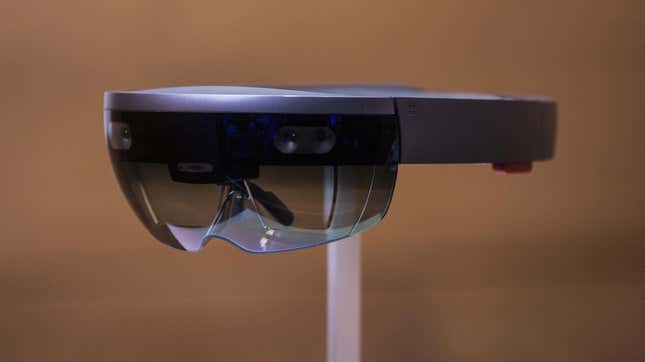
2015
Ethereum - February 20, 2015
Headline: How Much Longer Before Companies Start To Run Themselves?
If Bitcoin wanted to be adopted as the world’s primary currency, Ethereum hoped to be the global operating system running smart contracts and decentralized apps. In 2015, we took a deep dive into “Distributed Autonomous Corporations” and their vision of automating away the work that keeps millions employed. We had some reservations about it.
Hololens - January 21, 2015
Headline: HoloLens: Microsoft’s Audacious Plan to Make Anywhere a Holodeck
Magic Leap beat Microsoft to the punch when it came to selling the world on the idea of an augmented reality headset. Unfortunately, it hasn’t proven very good at actually selling those headsets for cash money. Microsoft hasn’t exactly set the world on fire with its HoloLens either, but by most accounts it’s chugging along with enterprise and government contracts, while we all wait to see if Apple’s forthcoming headset can be a breakthrough for the tech. Here’s what we wrote about HoloLens back in 2015:
“Microsoft is understandably super keen on the potential for this thing, they’re calling it “the next PC.” That’s a big promise—especially when it involves wearing something like this out and about and staring at things that aren’t there—but god my cold cynical heart hopes they are 10000 percent right. No word on price yet, which is a gigantic missing detail...
It’s not KNOCK YOUR EYES OUT OF YOUR FACE awesome quite yet, but it’s pretty damn cool.”
Cambridge Analytica - December 11, 2015
Headline: Ted Cruz Might Have Your Facebook Data, Depending on How Broke Your Friends Are
Remember how Facebook’s Cambridge Analytica scandal seemed to come out of nowhere in 2018 when a whistleblower revealed the ways in which millions of users social media data was used to help elect Donald Trump? Well, we tried to warn you back in 2015 when the political consultancy was working for Lyin’ Ted Cruz.
Cruz lost, Trump hired Cambridge, and Facebook has never been the same.
At this point, few people think that Facebook data was single-handedly responsible for Trump’s win but sorting through the implications gave us all a lesson in how deep Zuckerberg’s data reach can go, and how careless we’ve been with handing over records of our activities. Facebook remains evil and billions of people use its services, but you know, those people don’t feel great about it.
2016
Pokemon Go - July 8, 2016
Headline: Did Pokémon Go Put a Gym in an Actual Graveyard?
Pokemon Go put smartphone’s AR features on the map, and it put gyms in some weird places like a graveyard and the 9/11 memorial pool. Every spot may not have been kid friendly but at least they were getting some exercise.
Switch - October 20, 2016
Headline: Nintendo’s Next Console Is Called Switch, and It Looks Incredible
It looked incredible and it was incredible. Now, with the Steam Deck jumping into the game, the ability to dock a mobile console will likely be expected from all the biggest players.
2017
Amazon Key - October 25, 2017
Headline: Amazon Key Is Bigger Than Package Delivery
In 2017, Amazon chipped away at the Overton Window of private space in one of its most audacious gambles ever: It asked for a key to your house to make deliveries more convenient. Here’s what we said at the time:
“Amazon already has an ear in the home with its Alexa devices, and it’s teased us with the promise of fast access to goods via Dash buttons, Amazon Restaurants, and Whole Foods deliveries. With Key, Amazon is encouraging you not to just have an ear in the home, but yet another eye. And more importantly: a bunch of strangers, too.”
Most recently, Jeff Bezos’s home invasion plans got a fresh injection of life when Amazon bought iRobot, the makers of the Roomba vacuum bot along with its maps of users’ homes.
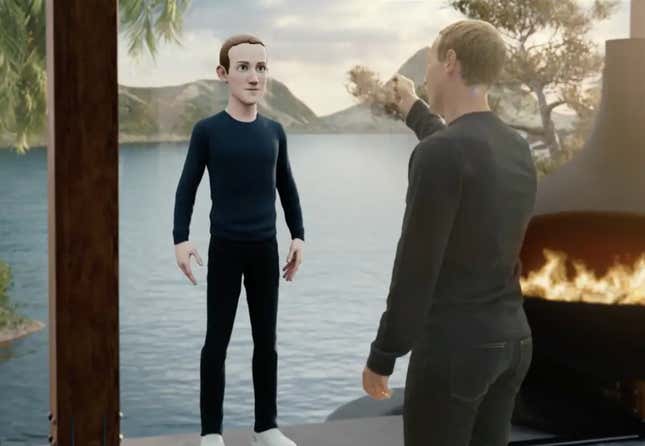
2018
Fortnite - April 11, 2018
Headline: PC Gaming Is So Hot, HP Is Launching a Second Line of Cheap Machines
Fortnite would normally be more in our colleagues at Kotaku’s wheelhouse, but it first landed on our site in reference to a new explosion of gamers snatching up PCs and graphic cards. Little did we know an even bigger explosion of people jumping into gaming was coming right down the pipeline, when everyone locked down for covid-19.
But in the year 2022, Fortnite’s relevance rests squarely on its demonstration of a proto-metaverse. Along with games like Minecraft and Roblox, the people who think the metaverse is the next big thing point to Fortnite as a new form of public square where we’ll live out our lives surrounded by intellectual property, pushing a button for the dopamine rush of one more loot box.
TikTok - August 2, 2018
Headline: Generation Z Will Have to LipSync in Front of Dying Grandpas on a Whole New App
If you don’t know what the dying grandpa reference in that headline is about, just click through. Just know that a little lipsyncing app called Musical.ly had picked up in popularity and was suddenly being shutdown in order to migrate its users to some video app called TikTok.
No one knew that this dumb app would soon become a national security concern for opportunistic politicians and the bane of Mark Zuckerberg’s existence.
2019
Impossible Burger 2 - October 8, 2014
Headline: The New Impossible Burger Is Stupid Delicious
Alright, I’m going to cheat a little bit on this one. Either 2019 wasn’t a very big year for emerging tech products or they just haven’t become apparent to me yet. So, we’ll talk about the release of the FDA-approved Impossible Burger 2. The first time we wrote about the Impossible Burger 1 was back in 2014 when it was all hype and still in development. The first time we tasted the primetime-ready burger was in 2019. We loved it.
Fake meat still has a long ways to go before it replaces the old-fashioned system of slaughtering animals but you can pretty much find it within driving distance anywhere in the U.S. these days.
2020
Covid-19 - February 11, 2020
Headline: There’s Now an Official Name for the Wuhan Coronavirus Illness
Who wants to take a trip down memory lane and reminisce about the early days of the pandemic!? Yeah, me neither.